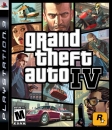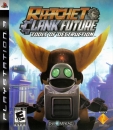| Pavolink said: Wow, didn't expect people to be that mad. I'm not the one responsible for this sales. Making or not the thread won't change the facts posted on the OP. Deal with it. Wii U and it's software strategy has failed, and these threads could help to discuss what else should Nintendo need to do now or in the next generation, not just complain about the thread. Metroid or not, Retros DK game was a bad decision and that won't influence at the quality of the game. But we are talking about it from another point of view. |
Agreed on this part. As much as I admire Nintendo following their creative impulse, and taking a "It'll be done when it's done" approach, they need to start showing some ruthlessness and better time management when it comes to their biggest releases.
Wii U's software strategy has several problems:
1) Major titles are sequels to Wii games that sold well on a far cheaper, far more accessible, and far more popular platform, that were either new ideas, or revivals of dormant ideas. Wii Sports, New Super Mario Brothers, Donkey Kong Country Returns all fit into this pattern. Which leads to...
2) Concept fatigue, as opposed to franchise fatigue. I'm not going to argue all Nintendo's franchises have lost selling power because Nintendo rehash their ideas, but re-using the same concepts so quickly on a confused, expensive, poorly advertised system has obviously not worked. New Super Mario Bros U came out mere months after the same franchise appeared on the far more popular 3DS. Donkey Kong Country: Tropical Freeze is a sequel hardly anyone with Nintendo's fanbase asked for, launching months after DKCR was remade and launched on the far more popular 3DS while doing nothing to take advantage of Wii U, and Nintendo's most popular new idea of recent times, Wii Sports, has been launched initially as an over-priced digital experiment with little or no fanfare, instead of being a highly advertised budget release or pack-in title. Even 3D Mario on Wii U re-used an existing concept from the 3DS title, instead of being the unique, marquee title that normally shifts millions of systems for Nintendo. Nintendo's franchises, launched at the right time for the right price, with enough effort and care, will still shift systems. Re-using the same concepts so quickly and so obviously, on a system that was built on a promise of new ideas, is a serious strategic error, and combined with Wii U's (for a Nintendo system) high entry barrier, it made Wii U a tough sell from day one.
3) Concept fatigue contributes to another problem for Nintendo: 3DS. There are far fewer fundamental differences between Nintendo's home console offerings, and their handheld console offerings, than there have been in the past. This is exacerbated by Nintendo re-using concepts across both machines without tying both machines together into a unified ecosystem. For many people, there is little incentive to buy a Wii U alongside your 3DS, which has a better catalogue of Nintendo games, better third party support, better digital support, and lower entry barriers across the board, when compared to Wii U. This is a serious issue going forward, which Nintendo seem to plan to address by turning handheld and home console into companion devices.
4) Expecting third parties to fill in the gaps. I believe both Nintendo and third parties are responsible for this. Nintendo needed to provide a system capable of going toe to toe with Xbox One and PS4 if they expected meaningful, long-term multi-platform support. Some third parties should have budgeted better, managed their expectations, and in some cases, not treated Wii U owners as second-class citizens at launch. All of this points to another serious strategic blunder. If Nintendo wanted to build a unique system, they needed third parties to be willing to supply unique propositions. Rayman Legends and Lego City were a good idea, but Legends was delayed and Lego City debuted at the wrong time. Which brings me onto another major point...
5) Nintendo need to build their install base, because no-one else will do it for them. Nintendo should focus on software that takes advantage of their own hardware, and this shouldn't just be Nintendo Land in the case of Wii U. Wii Sports was enough for Wii because Wii Sports operated on a simpler system with a far more accessible, communicable concept. Wii U is a more complex system with a less communicable idea, and it needed a major blockbuster launch--either a new franchise or something like 3D Mario--that displayed why Wii U was a must-own, and what kind of gaming possibilities Nintendo would bring to the table. Nintendo's failure to get their blockbusters out from day one (I have covered why NSMB didn't fit into this category, namely 3DS recent release/re-using existing concept too quickly, but I also believe Wii U's price point contributed to NSMB being a poor choice of launch game) on a regular basis, leading to a failure to demonstrate the desireability of their hardware, hampered 3DS and has helped to sink Wii U.
As an extension of point 5, and to put forward my over-all argument for Nintendo's software strategy, Nintendo need to move on from the "It'll be done when it's done mentality". Investment and expansion should target their core studios, so that 3D Mario, Smash Brothers, Mario Kart, and The Legend of Zelda have new franchise entries on a Nintendo system starting at launch, with each title following 3 to 6 months down the line. These titles, particularly 3D Mario and Zelda, need to be singular, defining experiences that fully utilise Nintendo's hardware. Wii U, so far, does not have a single blockbuster title that fits this description. It has some excellent games, but nothing that would have altered and defined the message around the console from "What's the point?" to "That's very exciting". That is the single biggest flaw for me, in Nintendo's software strategy, because it represents a conservatism and lack of creativity that has cut the legs from under Wii U, and this will make Wii U's entire lifespan a serious struggle. Nintendo need to complement their blockbuster launches with a wide variety of smaller franchise installments, what multi-platform support (things like Just Dance, Disney: Infinity and Skylanders still sell) they can grab, and exclusive deals with third parties to provide collaborative efforts and exclusive software. Combine that with a unified Nintendo Network for people to buy into, with cross-platform software (in some cases), a cross-platform Virtual Console subscription service, a lower entry price for the hardware, and a larger portfolio of internal studios, and I think Nintendo can rebound from this. Not while Wii U is on the market, but they need to learn the lessons Wii U is teaching, and it should teach Nintendo their software strategy needs to be different in the future.





















































